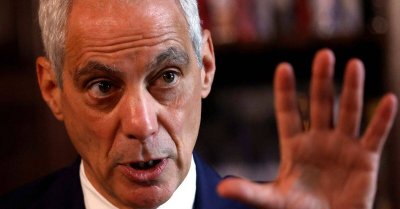Reuters-Exclusive US military begins Japan seafood purchases to counter China ban
October 30, 2023 4 min 678 words
这则报道揭示了美国为了应对中国禁止进口日本海鲜的举措,开始购买日本海鲜供应给驻扎在日本的军队。这是一个非常现实的反应,表明国际政治和经济之间的紧张关系,特别是中美之间的竞争。中国之前一直是日本海鲜的最大进口国,但他们以食品安全为由实施了这一禁令。美国大使Emanuel提出了一个有趣的观点,即通过购买并支持受到制裁的国家或行业来削弱中国的经济压力。这种做法可能会对中美关系产生一定影响,因为美国采取了一种更坚决的态度,但Emanuel声称自己是"现实主义者"而不是"鹰派"。这也强调了中美之间紧张关系的复杂性和变化。总之,这则报道突显了国际政治和贸易之间的复杂相互关系,以及各方如何应对这些挑战。
The United States has for the first time begun buying Japanese seafood to supply its military there, a response to China's ban on such products imposed after Tokyo released treated water from its crippled Fukushima nuclear plant into the sea.
Unveiling the initiative in a Reuters interview on Monday, U.S. ambassador to Japan Rahm Emanuel said Washington should also look more broadly into how it could help offset China's ban that he said was part of its "economic wars".
China, which had been the biggest buyer of Japanese seafood, says its ban is due to food safety fears.
The U.N.'s nuclear watchdog vouched for the safety of the water release that began in August from the plant wrecked by a 2011 tsunami. G7 trade ministers on Sunday called for the immediate repeal of bans on Japanese food.
"It's going to be a long-term contract between the U.S. armed forces and the fisheries and co-ops here in Japan," Emanuel said.
"The best way we have proven in all the instances to kind of wear out China's economic coercion is come to the aid and assistance of the targeted country or industry," he said.
The first purchase involves just shy of a metric ton of scallops, a tiny fraction of more than 100,000 tons of scallops that Japan exported to mainland China last year.
Emanuel said the purchases - which will feed soldiers in messes and aboard vessels as well as being sold in shops and restaurants on military bases - will increase over time to all types of seafood. The U.S. military had not previously bought local seafood in Japan, he said.
The U.S. could also look at its overall fish imports from Japan and China, he said. The U.S. is also in talks with Japanese authorities to help direct locally caught scallops to U.S.-registered processors.
Emanuel, who was former U.S. President Barack Obama's White House chief of staff, has in recent months made a series of blunt statements on China, taking aim at various issues including its economic policies, opaque decision-making and treatment of foreign firms.
That has come as top U.S. officials, including Secretary of State Antony Blinken, have visited Beijing in an effort to draw a line under strained ties.
Asked if he considered himself hawkish on China, Emanuel rejected the term and said he was a "realist".
"I don't consider it hawkish but just consider it realist and honest. Maybe the honesty is painful, but it's honest," he said.
"I'm all for stability, understanding. That doesn't mean you're not honest. They're not contradictory. One of the ways you establish stability, is that you're able to be honest with each other."
He said China faced major economic challenges exacerbated by a leadership intent on turning their backs on international systems.
"The kind of loser in this is the youth of China. You now have a situation where 30% of the Chinese youth, one out of three, are unemployed. You have major cities with unfinished housing ... you have major municipalities not able to pay city workers. Why? Because China made a political decision to turn their back on a system in which they were benefiting."
The most recent official youth unemployment data from China, published in July before Beijing said it was suspending publication of the numbers, showed it jumping to a record high of 21.3%.
Emanuel said he was also keeping a close watch on how China's leadership responds to the recent death of former Premier Li Keqiang, a reformist who was sidelined by President Xi Jinping.
"What's ... interesting to me, that I think is telltale, is how they will be treating his funeral and how they'll be treating comments about him," he said.
"I do think that there's kind of a section of China that sees what kind of policies he was pursuing as kind of the best of China. But that's up for China to decide."

